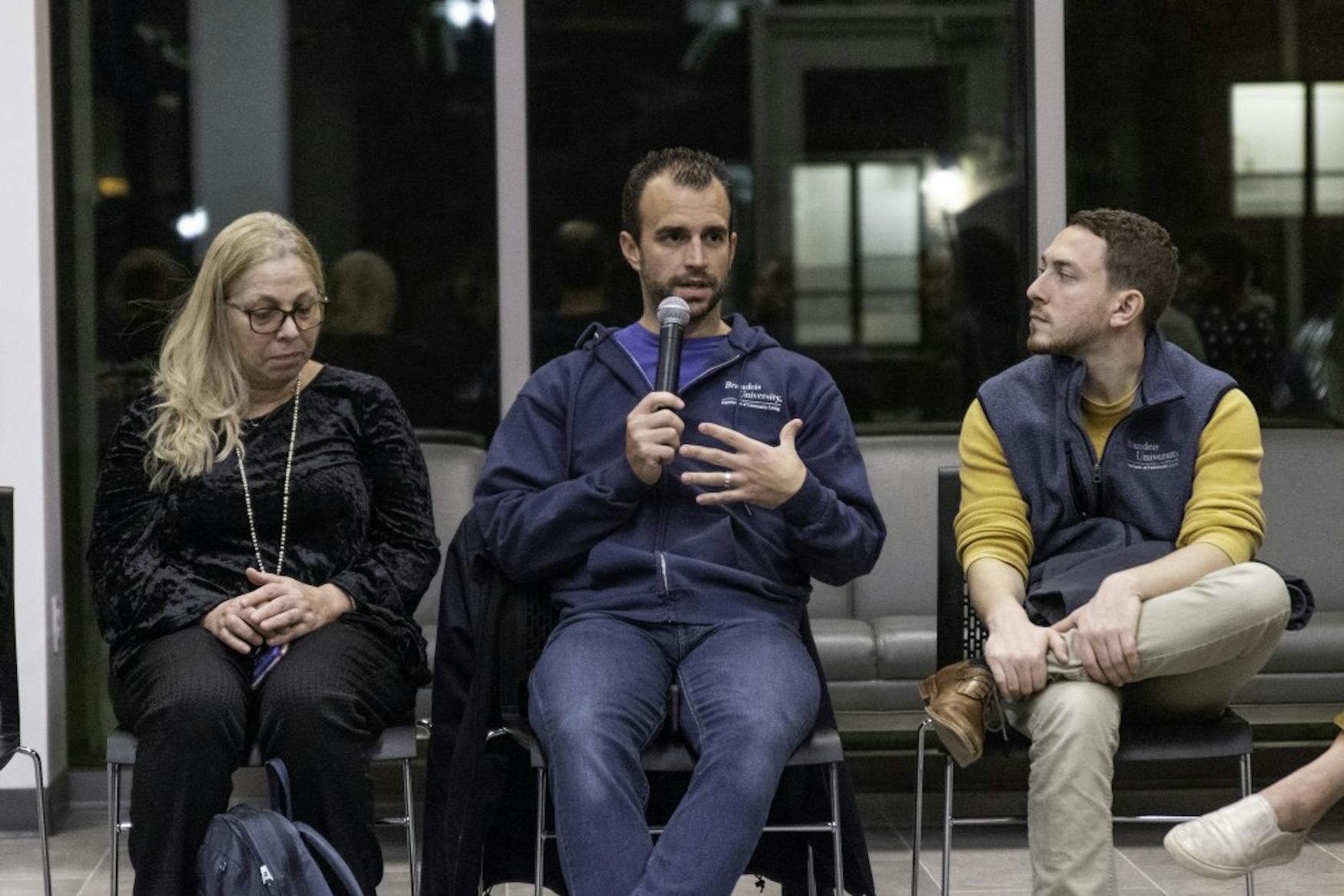DCL, administration, students discuss residential policies
In the first of a series of campus conversations sponsored by the Dean of Students’ office, members of the Brandeis community gathered in Skyline Commons to hear the Department of Community Living address questions regarding piano installation policies, accessibility and declassing dormitories.
The event was the first in a series of “Campus Conversations” organized by Dean of Students Jamele Adams and Student Union President Hannah Brown ’19. The new series is designed to “use the intimacy of the space and the setting to have a discussion,” Adams explained. “Campus Conversations” are replacing a previous discussion series, “Small Form,” that served to alleviate concerns between DCL and the student body.
The event was also attended by Jim Gray, the vice president of Campus Operations, Stephanie Grimes, assistant dean of the Dean of Students Office, Provost Lisa Lynch and Timothy Touchette, assistant dean of the Division of Student Affairs. Members of DCL and Area Coordinators were also in attendance.
Adams began the forum with a moment of silence for the victims of last week’s shooting in Thousand Oaks, California. He then invited Brown to select the first question from those submitted. The discussion then continued in a seminar-like conversation about different submitted questions.
Roland Blanding ’21, a member of the Union’s Allocations Board, inquired about the response from DCL about a recent resolution aiming to install pianos in quad lounges in first-year residence halls. DCL had told A-Board that the pianos could not be installed because the lounges themselves were “not handicap accessible.” Blanding asked if there are policies in place for future installations and proposals.
Touchette responded by explaining that there are “currently pretty specific policies in place” regarding installing items in residence hall lounges. According to Touchette, one of the primary concerns about the piano resolution stemmed from efficiency concerns. He explained that although the lounge spaces “are used constantly,” the pianos themselves may not “get used much at all.”
Additionally, the pianos would have to be moved and relocated frequently, causing the instruments to require frequent tuning. This makes the process costly in the long term, he explained. To directly address Blanding’s question, Touchette explained further that he was concerned that maintaining the instruments themselves would be costly for DCL.
Touchette was also asked about the costs for students working for campus publications who stay on campus after the spring semester ends to cover commencement. Touchette explained that DCL “works with Facilities and contractors to reduce the cost of living to as small a rate as possible” during commencement and Senior Week. “If we kept operating the way we were,” Touchette explained in reference to previous years in which DCL attempted to cover the leftover cost themselves, “it would not contribute to a sustainable plan,” as the department would have to draw funds from its office’s budget.
One question submitted online inquired about the necessity of having recycling signs on all papers posted or distributed on campus, as well as to why DCL does not provide recycling sign stamps. Grimes explained that “the requirement of a recycling sign is not in the University Rights and Responsibilities” handbook and is rather an idea “adopted within the student centers.” She noted that a stamp could serve the same purpose. Touchette added that DCL has been working with a company called Mvix Digital Signage, which promotes digital advertising, to provide a sustainable option for advertising while reducing the amount of paper waste in the residence halls.
Another question addressed accessibility within the laundry rooms, noting that the card-swipe machines do not generally have any auditory indication that actions have been taken. Additionally, the buttons do not have braille on them, making it more difficult for visually impaired students to navigate the process. Responding to this, Gray said that he would attempt to ensure a more accessible process for the card-swipe systems across campus.
Finally, when asked about residential life and whether or not DCL would remove the restrictions of the current dorms to specific class years, Touchette explained that in a survey of the entire student population that asked if “they’d want to declass the housing system,” students said that “they did not want to declass the system” because it would prevent them from accessing dormitories they desired. Skyline’s housing class requirement is not currently finalized, but is generally open to sophomores.
Lynch explained that common areas will be refurbished to make them larger, more enjoyable spaces, using Skyline Commons as a blueprint. She also visualizes future “common areas that would connect multiple residence halls,” an idea modeled off other campuses.
In an interview with the Justice, Ziv Quad and Ridgewood Quad Area Coordinator Lusi Wang explained that DCL focuses on “responding to crises” as well as “supervising CAs and talking through issues.” Area Coordinators are also able to address on-campus dorm conflicts. She explained that DCL is happy to respond to students and learn more about their experiences.
—Editor’s note: Roland Blanding is a Forum staff writer for the Justice.



Please note All comments are eligible for publication in The Justice.